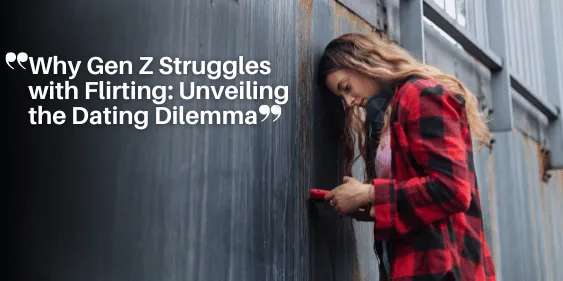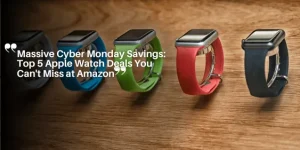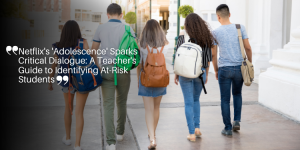Why Gen Z Struggles with Flirting: Unveiling the Dating Dilemma

Generation Z’s Unique Challenges in Modern Romance
Navigating the intricate landscape of modern romance has become increasingly challenging for Generation Z, those born between 1997 and 2012.
One of the primary obstacles they face is their difficulty with flirting, a skill many have yet to master.
This issue is compounded by the prevalence of social anxiety within this generation, making it tough for many to make meaningful connections in person.
The Growing Preference for Offline Dating
Despite the rise of online dating platforms, there is a growing preference among Gen Z for offline dating.
Many young people, like Nikki Sanjongco, a 24-year-old who isn’t fond of dating apps, find face-to-face interactions more appealing. However, this approach comes with its own set of challenges.
The ability to gauge romantic interest without the clear signals provided by dating apps can be difficult, leading to missed connections and misunderstandings.
The Lost Art of Flirting Among Zoomers
Flirting, once a natural part of courtship, has become a lost art among Zoomers. This decline can be attributed to several factors:
- Digital communication has replaced many face-to-face interactions.
- The rise of social anxiety makes initiating conversations increasingly daunting.
- The pandemic has further limited opportunities to practice and develop these social skills.
As a result, many in Gen Z struggle with the nuances of flirting, reducing their chances of forming meaningful romantic connections. Despite these challenges, there is hope. More young people are stepping out of their comfort zones to engage in real-life interactions, signaling a potential resurgence in the art of flirting.
The Impact of Social Anxiety
Prevalence of Social Anxiety among Gen Z
Gen Z, those born between 1997 and 2012, faces a unique set of challenges in the dating landscape.
One major obstacle is the prevalence of social anxiety.
This generation is often reluctant to approach strangers and initiate romantic interactions. Studies have shown that social anxiety is more common among Zoomers than previous generations, making flirting and connecting in person more daunting.
Difficulty in Approaching Strangers and Initiating Conversations
The process of initiating conversations with strangers, crucial for romantic interactions, is particularly tough for Gen Z.
Many young people in this age group express a distinct discomfort in approaching someone they find attractive.
This reluctance is exacerbated by a fear of judgment and the potential for rejection, making the first move feel like an insurmountable task.
The Struggle to Gauge Romantic Interest Without Clear Signals
Gauging romantic interest without clear signals has also been a significant hurdle. In the digital age, dating apps provide direct indicators of interest, such as likes and matches.
However, in face-to-face interactions, these cues are not always evident. Gen Z often find themselves unsure if someone is interested, making them hesitant to pursue potential romantic connections.
This current chapter of the Gen Z dating landscape underscores the intricacies of dating and romantic interactions in a socially anxious age.
Understanding these challenges is crucial to grasping the broader context of why young people today are seeking more offline interactions and how they can overcome social hurdles.
The Pandemic’s Role in Shaping Social Skills
COVID-19’s Impact on Crucial Social Experiences
The COVID-19 pandemic significantly disrupted the formative social experiences of Generation Z.
Many missed out on traditional milestones like high school proms and college parties, which are key moments for developing interpersonal skills. For a generation already struggling with social anxiety, the lockdowns meant fewer chances to practice real-world social interactions.
As a result, many Zoomers entered adulthood less prepared for face-to-face communication and the nuances of flirting.
Missed Opportunities for Developing In-Person Communication Skills
The pandemic’s social distancing measures led to countless missed opportunities for Gen Z to hone their in-person communication skills.
Remote learning and virtual social events became the norm, depriving young people of essential face-to-face experiences.
These lost moments have been vital in any other generation’s social development, creating a pronounced gap in social abilities.
The Consequences of Limited Face-to-Face Interactions During Formative Years
During the pandemic, many Gen Z individuals heavily relied on digital communication.
This reliance further eroded their ability to engage in meaningful real-world interactions.
The anonymity and detachment of the internet may have offered a sense of security, but it also prevented the necessary exposure to in-person cues and body language that underpin successful flirting and romantic connections.
Despite these setbacks, there is a silver lining. As the world reopens, there’s a noticeable shift towards offline social activities.
Young people are stepping out of their comfort zones and attending events, signaling a budding confidence to reconnect in person.
This emerging trend presents a glimmer of hope that, with time and practice, Gen Z can reclaim and master the art of real-world social interaction and romance.
The Double-Edged Sword of Online Dating
Fatigue from Endless Digital Options
Online dating apps offer an abundance of options, but for many Gen Z individuals, this seemingly endless digital buffet has led to fatigue.
The constant swiping and browsing creates a dizzying array of choices, paradoxically making it harder to settle on any one person.
This decision overload can lead to what’s known as “option paralysis,” where the sheer volume of potential matches becomes overwhelming, diminishing the joy and excitement that comes with meeting new people.
Superficial Connections and Ego Boosts vs. Genuine Interactions
One of the most significant issues with online dating is the tendency for relationships to remain superficial.
Apps designed to facilitate quick hookups or casual conversations often replace authentic connections with brief, inconsequential exchanges.
These fleeting interactions serve more as ego boosts than as foundations for genuine relationships.
Flirt coach Benjamin Camras notes this “love-hate relationship” with dating apps among his Gen Z followers, who seek the instant gratification provided by a match or a like, but often find themselves dissatisfied with the results.
The Disconnect Between Online Personas and Real-World Relationships
The disparity between online personas and real-life interactions further complicates the dating landscape for Gen Z.
Online profiles are often curated to highlight the most attractive and interesting facets of a person’s life, creating an idealized version that rarely aligns with reality.
This disconnect can be jarring when transitioning from digital to face-to-face interactions, leading to disappointment and confusion.
The polished and edited nature of online identities skews expectations, making sincere, meaningful relationships harder to achieve.
As Gen Z navigates this complex dating terrain, there’s a noticeable shift towards in-person interactions.
While the transition from online to offline romance is filled with its own challenges, the desire for genuine connections drives many young people to explore new social horizons.
The Shift Towards In-Person Interactions
Increasing Interest in Offline Social Opportunities
Against the backdrop of digital fatigue, Generation Z is showing a notable shift towards offline interactions.
Eventbrite, a prominent platform for live experiences, has observed a significant rise in searches for events, with 1.5 million more searches over the last year.
This trend highlights a growing eagerness among Zoomers to engage in real-life social opportunities despite the lingering impacts of the pandemic.
Growing Willingness to Attend Events Alone
Interestingly, there’s also a noticeable increase in individuals attending events solo.
This indicates a burgeoning confidence among Gen Zers to step out of their comfort zones and seek authentic social experiences without relying on a safety net of friends or digital backups.
Attendees like Williams have noticed this pattern and view it as a positive step towards reclaiming meaningful in-person interactions.
Challenges in Transitioning from Online to Offline Dating
The transition from online to offline dating, however, is not without its hurdles.
Years of reliance on dating apps have ingrained certain behaviors that do not necessarily translate well into face-to-face interactions.
Many young people are used to the anonymity and curated personas of online dating, which can create a challenging disconnect when attempting to establish genuine, real-world connections.
Benjamin Camras, a renowned “flirt coach,” has discussed this complexity, noting the “love-hate relationship” many Gen Zers have with dating apps Instagram.
These platforms often encourage superficial connections based on ego boosts rather than fostering authentic relationships.
The shift to offline dating thus requires unlearning some of these ingrained behaviors and relearning the lost art of natural, spontaneous interaction.
Despite these challenges, the increasing interest in offline social opportunities and the willingness to attend events alone suggest that there is a promising movement towards mastering real-world romance. The journey to overcome these hurdles is ongoing but offers hope for genuine human connections rooted in the present.
Overcoming the Flirting Hurdle
Generation Z’s foray into the world of dating is often marred by the challenges associated with flirting.
These young adults, born between 1997 and 2012, face unique obstacles, including high levels of social anxiety and a lack of in-person interaction skills. Despite these hurdles, there’s growing hope and practical strategies that can aid them in mastering the art of flirting.
The Importance of Practice
Flirting, like any other skill, requires practice to master. The persistent difficulties faced by Gen Z in romantic endeavors often stem from insufficient opportunities to practice flirting in face-to-face settings.
However, by consistently engaging in social scenarios, they can gradually build confidence.
For instance, opting to attend events alone can push individuals out of their comfort zones, providing them with chances to initiate conversations and perfect their flirting techniques. According to Eventbrite, there has been a noticeable uptick in event searches, signifying a willingness among Gen Z to step out and engage more authentically.
Gradual Decline of Social Anxiety
Social anxiety typically diminishes with repeated exposure to social situations.
By participating in more offline activities, Gen Zers can slowly but surely reduce the anxiety linked to flirting.
The support of peers and practice can aid in this transformation. Social interactions are essential for desensitization, helping individuals feel less intimidated by the idea of striking up conversations and expressing romantic interest.
A critical step involves understanding that rejection is a part of the process.
Coping with rejection in real life, rather than in the sterile environment of online dating, builds resilience and fortifies flirting capabilities, making success in subsequent interactions more likely.
Hope for Mastering Real-World Romance
Despite the considerable challenges, there is optimism that Gen Z can reclaim the art of in-person romance.
Increased interest in offline events reflects a positive trend towards genuine, meaningful connections.
As they spend more time in real-world social settings, their flirting skills will inevitably improve.
The key is persistence and a willingness to learn from each interaction, positive or negative.
As this generation navigates the evolving landscape of modern romance, the foundational skills of flirting, nurtured and practiced with intent, will lead to more authentic relationships and fulfilling dating experiences.
The journey towards mastering flirting is ongoing, but with dedication and an embrace of real-world social opportunities, Generation Z is poised to thrive in the realm of romance.







